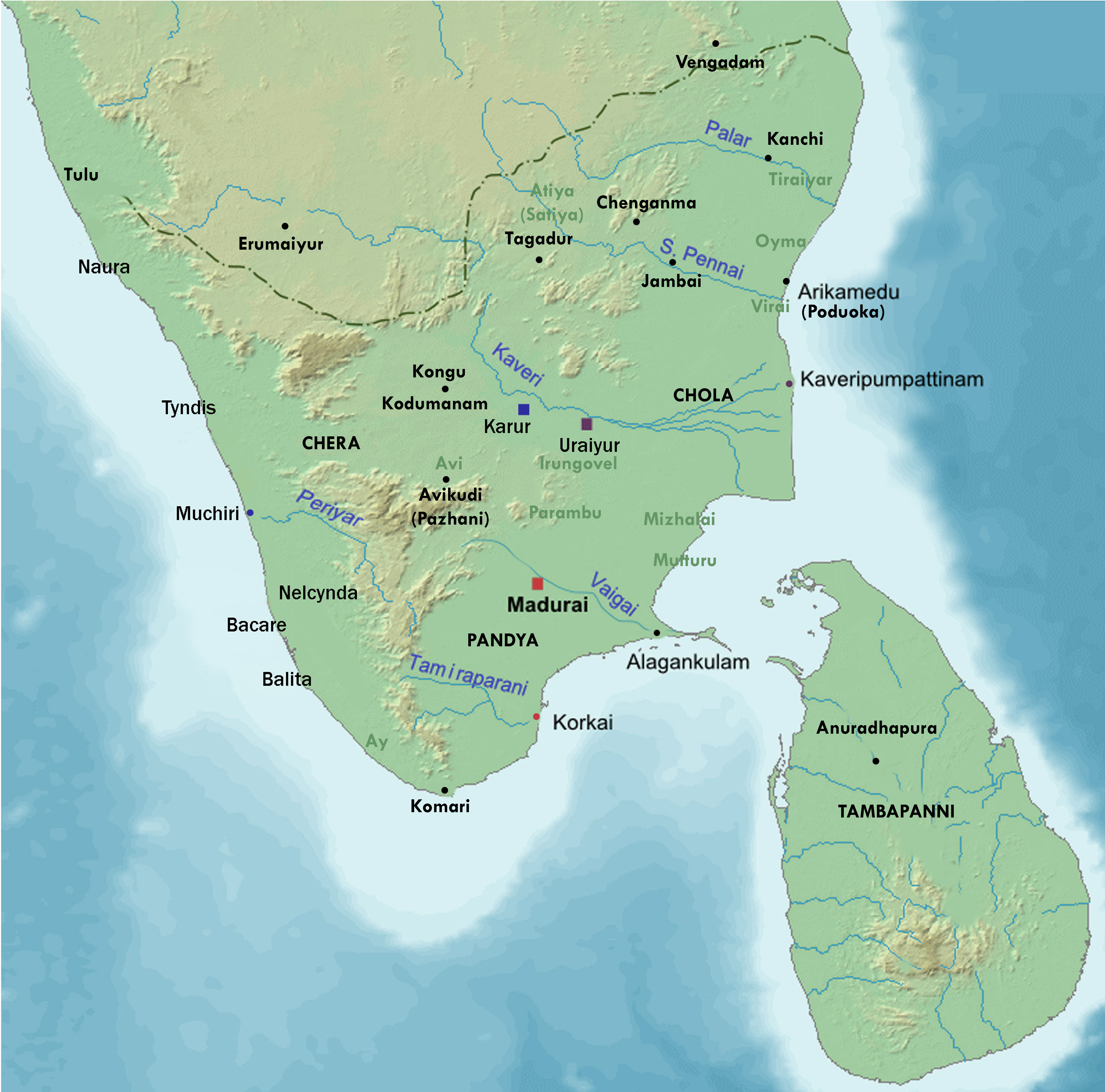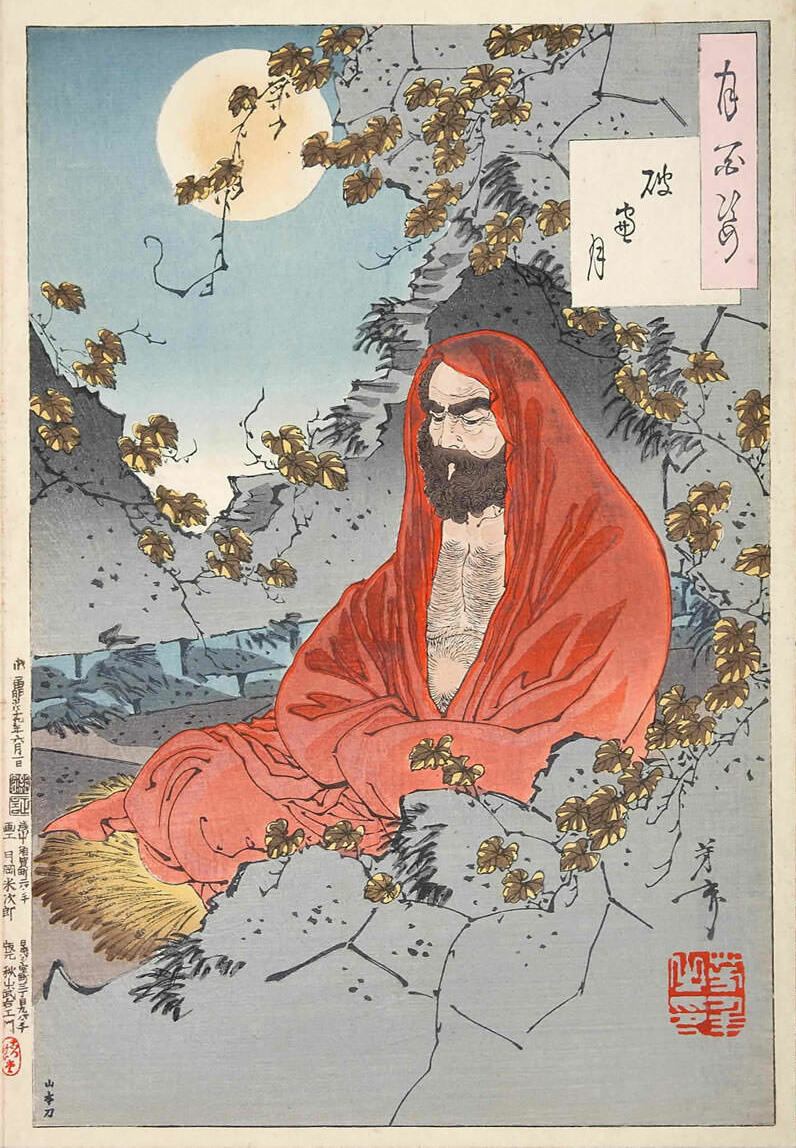|
Sattanar
Satthanar or Chithalai Satthanar ( ta, ŗģöŗģĺŗģ§ŗĮćŗģ§ŗģ©ŗģĺŗģįŗĮć or ŗģöŗĮÄŗģ§ŗĮćŗģ§ŗģ≤ŗĮąŗģöŗĮć ŗģöŗģĺŗģ§ŗĮćŗģ§ŗģ©ŗģĺŗģįŗĮć, ''cńętalai cńĀttanńĀr'') was the Tamil poet who composed the epic Manimekalai. A total of 11 verses of the Sangam literature have been attributed to Satthanar, including verse 10 of the Tiruvalluva Maalai. Etymology Pronounced ''Sa-tha-naar,'' the name is derived from ( ta, ŗģöŗģĺŗģ§ŗĮćŗģ§ŗĮĀ, ''sńĀttu'') meaning Buddhist monk. Applying this principle to the name Maturai KulavńĀŠĻáikan CńĀttan, the author of Manimekalai, we see that the two appellations Maturai and Kulavanikan were prefixed to his name in order to distinguish him from another poet of Maturai with the same name and from a third who lived elsewhere. Several examples could be cited of this system of nomenclature which prevailed during the early days. Biography Satthanar hailed from a place known as Seerthandalai, later came to be known as Seethalai. He was a grain merchant at Madurai and h ... [...More Info...] [...Related Items...] OR: [Wikipedia] [Google] [Baidu] |
Cilapatikaram
''CilappatikńĀram'' ( ta, ŗģöŗģŅŗģ≤ŗģ™ŗĮćŗģ™ŗģ§ŗģŅŗģēŗģĺŗģįŗģģŗĮć ml, ŗīöŗīŅŗī≤ŗī™ŗĶćŗī™ŗī§ŗīŅŗīēŗīĺŗīįŗīā,IPA: ßil…ôpp…ôtŐ™ik…Ďňźr…ôm, ''lit.'' "the Tale of an Anklet"), also referred to as ''Silappathikaram'' or ''Silappatikaram'', is the earliest Tamil epic. It is a poem of 5,730 lines in almost entirely ''akaval'' (''aciriyam'') meter. The epic is a tragic love story of an ordinary couple, Kannaki and her husband Kovalan. The ''Silappathikaram'' has more ancient roots in the Tamil bardic tradition, as Kannaki and other characters of the story are mentioned or alluded to in the Sangam literature such as in the ''NaŠĻüŠĻüiŠĻáai'' and later texts such as the ''Kovalam Katai''. It is attributed to a prince-turned-monk IŠł∑aŠĻÖk√Ķ AŠĻ≠ikaŠł∑, and was probably composed in the 5th or 6th century CE. The ''Silappatikaram'' is set in a flourishing seaport city of the early Chola kingdom. Kannaki and Kovalan are a newly married couple, in love, and living in bliss. Over time, Kova ... [...More Info...] [...Related Items...] OR: [Wikipedia] [Google] [Baidu] |
Tamil People
The Tamil people, also known as Tamilar ( ta, ŗģ§ŗģģŗģŅŗģīŗģįŗĮć, TamiŠłĽar, translit-std=ISO, in the singular or ta, ŗģ§ŗģģŗģŅŗģīŗģįŗĮćŗģēŗģ≥ŗĮć, TamiŠłĽarkaŠł∑, translit-std=ISO, label=none, in the plural), or simply Tamils (), are a Dravidian peoples, Dravidian ethno-linguistic group who trace their ancestry mainly to India‚Äôs South India, southern state of Tamil Nadu, union territory of Puducherry (union territory), Puducherry and to Sri Lanka. Tamils who speak the Tamil Language and are born in :Social groups of Tamil Nadu, Tamil clans are considered Tamilians. Tamils constitute 5.9% of the population in India (concentrated mainly in Tamil Nadu and Puducherry), 15% in Sri Lanka (excluding Sri Lankan Moors), 7% in Tamil Malaysians, Malaysia, 6% in Tamil Mauritians, Mauritius, and 5% in Indian Singaporeans, Singapore. From the 4th century BCE, urbanisation and mercantile activity along the western and eastern coasts of what is today Kerala and Tamil Nadu led to the develo ... [...More Info...] [...Related Items...] OR: [Wikipedia] [Google] [Baidu] |
Buddhism Amongst Tamils
Buddhism amongst the Tamils was historically found in the Tamilakam region of India and Northern Sri Lanka. India Origin The heritage of the town of NńĀkappaŠĻ≠ŠĻ≠inam is found in the Burmese historical text of the 3rd century BCE and gives evidence of a Budha Vihar built by the King Ashoka. An inscription from Anuradhapura, Sri Lanka dated to 2nd century BCE records the association of Tamil merchants with Buddhist institution. For several centuries in the second millennium of the common era Buddhism among the Tamils in Tamil Nadu and Sri Lanka was neglected and virtually abandoned due to shifts in political patronage and the revivalism among non-Buddhist religions. According to A.J.V. Chandrakanthan who recently (2019) published an article about an 11th-century comparative work named Veerasoliyam, codifying Tamil and Sanskrit Philology and Poetics is a clear indicator of the prominence given to Buddhism in Tamil scholarship. However the pan Saiva revival in Tamilagam in the se ... [...More Info...] [...Related Items...] OR: [Wikipedia] [Google] [Baidu] |
Year Of Death Unknown
A year or annus is the orbital period of a planetary body, for example, the Earth, moving in its orbit around the Sun. Due to the Earth's axial tilt, the course of a year sees the passing of the seasons, marked by change in weather, the hours of daylight, and, consequently, vegetation and soil fertility. In temperate and subpolar regions around the planet, four seasons are generally recognized: spring, summer, autumn and winter. In tropical and subtropical regions, several geographical sectors do not present defined seasons; but in the seasonal tropics, the annual wet and dry seasons are recognized and tracked. A calendar year is an approximation of the number of days of the Earth's orbital period, as counted in a given calendar. The Gregorian calendar, or modern calendar, presents its calendar year to be either a common year of 365 days or a leap year of 366 days, as do the Julian calendars. For the Gregorian calendar, the average length of the calendar year (the mea ... [...More Info...] [...Related Items...] OR: [Wikipedia] [Google] [Baidu] |
Year Of Birth Unknown
A year or annus is the orbital period of a planetary body, for example, the Earth, moving in its orbit around the Sun. Due to the Earth's axial tilt, the course of a year sees the passing of the seasons, marked by change in weather, the hours of daylight, and, consequently, vegetation and soil fertility. In temperate and subpolar regions around the planet, four seasons are generally recognized: spring, summer, autumn and winter. In tropical and subtropical regions, several geographical sectors do not present defined seasons; but in the seasonal tropics, the annual wet and dry seasons are recognized and tracked. A calendar year is an approximation of the number of days of the Earth's orbital period, as counted in a given calendar. The Gregorian calendar, or modern calendar, presents its calendar year to be either a common year of 365 days or a leap year of 366 days, as do the Julian calendars. For the Gregorian calendar, the average length of the calendar year ( ... [...More Info...] [...Related Items...] OR: [Wikipedia] [Google] [Baidu] |
Indian Male Poets
Indian or Indians may refer to: Peoples South Asia * Indian people, people of Indian nationality, or people who have an Indian ancestor ** Non-resident Indian, a citizen of India who has temporarily emigrated to another country * South Asian ethnic groups, referring to people of the Indian subcontinent, as well as the greater South Asia region prior to the 1947 partition of India * Anglo-Indians, people with mixed Indian and British ancestry, or people of British descent born or living in the Indian subcontinent * East Indians, a Christian community in India Europe * British Indians, British people of Indian origin The Americas * Indo-Canadians, Canadian people of Indian origin * Indian Americans, American people of Indian origin * Indigenous peoples of the Americas, the pre-Columbian inhabitants of the Americas and their descendants ** Plains Indians, the common name for the Native Americans who lived on the Great Plains of North America ** Native Americans in the U ... [...More Info...] [...Related Items...] OR: [Wikipedia] [Google] [Baidu] |
Sangam Poets
Sangam, (from ''Sangama'', the Sanskrit word for confluence) may refer to: Confluence of rivers *Sangam, any confluence of two or more rivers in Indian languages *The Triveni Sangam, the confluence of three rivers at Allahabad: the Ganges, Yamuna and the mythical Saraswat Tamil history *Tamil Sangams, legendary assemblies of Tamil scholars and poets in the remote past *Sangam period, the earliest period of South Indian history, when the Tamil Sangams were held *Sangam literature, a collection of Tamil literature *First Sangam *Second Sangam *Third Sangam Places *Sangam, Akhnoor, a village in Jammu and Kashmir * Sangam, Anantnag, a village in Jammu and Kashmir *Sangam, Nellore district, a village in Andhra Pradesh * Sangam, Srikakulam district, a triveni sangam (triple confluence) in Andhra Pradesh * Sangam (Warangal district), a mandal and village in Warangal district in Andhra Pradesh * Sangama, Srirangapatna, a confluence of rivers in Karnataka Education *Sangam World Girl Gui ... [...More Info...] [...Related Items...] OR: [Wikipedia] [Google] [Baidu] |
Tamil Poets
Tamil may refer to: * Tamils, an ethnic group native to India and some other parts of Asia **Sri Lankan Tamils, Tamil people native to Sri Lanka also called ilankai tamils **Tamil Malaysians, Tamil people native to Malaysia * Tamil language, natively spoken by the Tamils * Tamil script, primarily used to write the Tamil language **Tamil (Unicode block), a block of Tamil characters in Unicode * Tamil dialects, referencing geographical variations in speech See also * Tamil cinema, also known as Kollywood, the word being a portmanteau of Kodambakkam and Hollywood. * Tamil cuisine * Tamil culture, is considered to be one of the world's oldest civilizations. * Tamil diaspora * Tamil Eelam, a proposed independent state in the north and east of Sri Lanka * Tamil Nadu, one of the 28 states of India * Tamil nationalism * ''Tamil News'', a daily Tamil-language television news program in Tamil Nadu * Tamilakam, the geographical region inhabited by the ancient Tamil people, covered today's Tam ... [...More Info...] [...Related Items...] OR: [Wikipedia] [Google] [Baidu] |
Tamil Philosophy
Tamil may refer to: * Tamils, an ethnic group native to India and some other parts of Asia **Sri Lankan Tamils, Tamil people native to Sri Lanka also called ilankai tamils **Tamil Malaysians, Tamil people native to Malaysia * Tamil language, natively spoken by the Tamils * Tamil script, primarily used to write the Tamil language **Tamil (Unicode block), a block of Tamil characters in Unicode * Tamil dialects, referencing geographical variations in speech See also * Tamil cinema, also known as Kollywood, the word being a portmanteau of Kodambakkam and Hollywood. * Tamil cuisine * Tamil culture, is considered to be one of the world's oldest civilizations. * Tamil diaspora * Tamil Eelam, a proposed independent state in the north and east of Sri Lanka * Tamil Nadu, one of the 28 states of India * Tamil nationalism * ''Tamil News'', a daily Tamil-language television news program in Tamil Nadu * Tamilakam, the geographical region inhabited by the ancient Tamil people, covered today's Tam ... [...More Info...] [...Related Items...] OR: [Wikipedia] [Google] [Baidu] |
List Of Sangam Poets
Sangam refers to the assembly of the highly learned people of the ancient Tamil land, with the primary aim of advancing the literature. There were historically three Sangams. With the details of the first two Sangams remaining obscure, all the available Sangam works come from the Third Sangam, which began sometime around 1500 BCE. It is said to have lasted 1850 years, until around 300 CE, with 449 poets contributing under the patronage of 49 Pandyan kings. However, only the works of the last 800 years of the Sangam period () have been retrieved and others are believed to have been lost. List of Sangam poets Below is a list of poets of the Third Sangam period: See also * Third Sangam * Sangam landscape The Sangam landscape (Tamil: ŗģÖŗģēŗģ§ŗĮćŗģ§ŗģŅŗģ£ŗĮą "inner classification") is the name given to a poetic device that was characteristic of love poetry in classical Tamil Sangam literature. The core of the device was the categorisation of poe ... References Further r ... [...More Info...] [...Related Items...] OR: [Wikipedia] [Google] [Baidu] |


